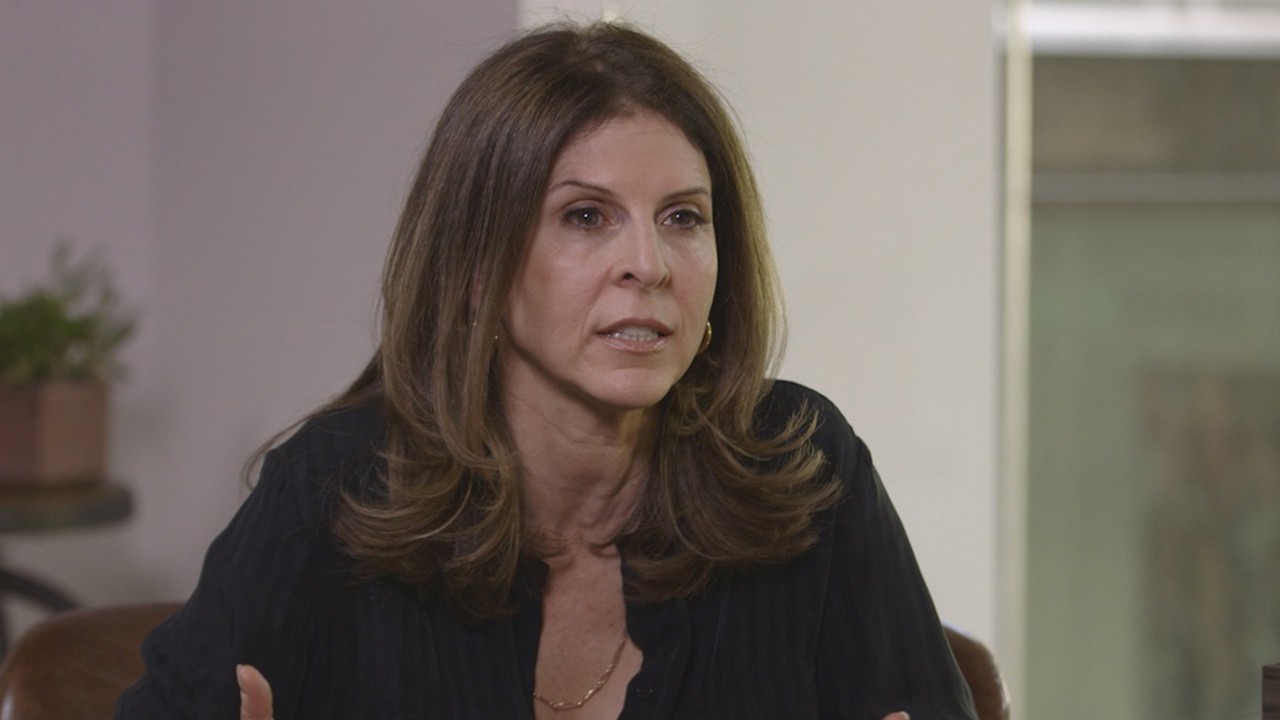Film producer Harvey Weinstein arrives at the amfAR Gala Cannes 2017 at Hotel du Cap-Eden-Roc on May 25, 2017 in Cap d'Antibes, France. (Photo by Tristan Fewings/French Select for amfAR)
What stunned me, at first, were the penises. In depositions and case filings, they kept popping up: penis-shaped calzones, chocolates, pastries, statues, dildos, soaps, magic-marker drawings. Women reported finding them in their lockers, their desk drawers, on bathroom walls. Call me a naïve lesbian, but before I started reporting on sexual harassment about 15 years ago, I had no idea men were so, um, attached to intimidating women with their boy-parts, both in person and by proxy. But after making my way through enough legal documents, I developed a sense for when the penises might be on their way, and sometimes laughed out loud when they inevitably appeared.No, it's not actually funny. But try spending weeks or months diving into how brutally women are abused on the job and see if it doesn't warp your sense of humor. Because, of course, the faux penises were the least of it. The bodily threats, the group gropes, the stalking, the sexual assaults—those were the ugly parts.
All of which is to say that I'm not at all surprised by the many allegations of sexual harassment and, in several cases, rape, that have been made against Harvey Weinstein. Not because I had any special knowledge; I'm about as far as you can get from a Hollywood insider. But of course there are powerful men in Hollywood preying on vulnerable young women, using and disposing of them as if they were handkerchiefs instead of humans. This is a fact of life for women working in every industry in America.The Weinstein case is getting impressive press in large part because celebrities are involved—so did serial assault and harassment allegations against Bill Cosby and Bill O'Reilly, respectively. But as we click through the lurid and appalling articles detailing how this particular man allegedly poisoned and derailed so many women's lives and careers, I have no doubt whatsoever that thousands of far less famous men are doing the same elsewhere to tens of thousands of women doggedly trying to make a living in far less glamorous jobs. They're doing it right now, from Silicon Valley to Florida's muddy tomato fields. Their victims will never hit the headlines, but these women will lose time, energy, opportunities, peace of mind—and income—just the same.

Sometimes those men are at it solo. Sometimes they set a toxic tone in which the entire workplace, from executive suite to franchise outlets, regularly threatens women with assault. In my own reporting, I've come across perps who were assistant managers at fast-food chains, university professors and CEOs, firemen and cops, dentists and doctors. The companies accused have spanned an entire retail chain (Rent-a-Center, which paid $47 million in a class-action lawsuit brought by 5,000 women across the country) to huge farms and vast factory floors. I've spoken with women who had such severe PTSD from ongoing harassment that they changed fields completely. One who'd been extremely ambitious at her old job went back to school to learn a new trade where she never had to speak to another human being in person. I even spoke to a woman who took medical retirement prematurely, too traumatized to keep working at all.But here's the key thing I gleaned working with Evelyn Murphy on her 2005 book Getting Even, which explored the gender-wage gap in the United States: Yes, serially groping, grabbing, coercing, and assaulting women is disgusting, cruel, and criminal. But it's also costly. When you have to try to defend your bodily and emotional integrity every day, your paycheck takes a hit—sometimes for the year or two that you're fending off your boss or colleagues and feeling humiliated that no one will help, and sometimes permanently, as with the women Weinstein is suspected of blackballing.Most of us know sexual assault—which Weinstein is accused of, and denies—is a crime. But sexual harassment is a civil offense under Title VII of the 1964 Civil Rights Act. Specifically, it's an offense against employment, or at least that was the landmark Supreme Court finding in 1986 called Meritor v. Vinson. In that case, a woman sued her employer because her manager insisted on "dating" her, pressuring her into a sexual relationship. (She also accused him of rape.) In a unanimous opinion, Chief Justice Rehnquist wrote, "Without question, when a supervisor sexually harasses a subordinate because of the subordinate's sex, that supervisor 'discriminate[s] on the basis of sex.'" He went on to explain that this is illegal when it's "'sufficiently severe or pervasive' to alter the conditions of [the victim's] employment and create an abusive working environment."Thanks in part to that case, during the Clarence Thomas nomination hearings in 1991, the mainstream of American culture was at least briefly put on notice about the horrors of sexual harassment. Anita Hill testified under oath that Thomas—who had been her boss at the Equal Opportunity Employment Commission, of all places—made ongoing (explicit) references to his own sexual prowess and pursued a relationship with her, which he denied. But Hill got thousands of letters from women thanking her for bringing the issue into public discussion, and over the next few years, the number of similar charges filed at the EEOC spiked. Inspired by Hill's testimony, an intrepid investigative reporter named Florence Graves (full disclosure: my former boss) worked doggedly for months to get former employees of Bob Packwood, a prominent US Senator from Oregon, to speak on the record for the Washington Post, accusing him of relentless predation. Reporter Susan Antilla wrote Tales from the Boom-Boom Room about rampant harassment in Wall Street, detailing how men who'd practiced preying on women back in their college frats kept those skills fresh.Every time one or two women come forward with such stories, willing to go on the record no matter how horribly they'll be pilloried for doing so, others inevitably follow to say that just the same thing happened to them—the same mode, the same approach. Because for the men who feel entitled to abuse women, once is never enough. When I spoke with Antilla last week, she seemed even more jaded than I am. Among other things, she told me that every time she's checked back in on a workplace where sexual harassment was once pervasive, things appeared to get better briefly while the company was in the news or a court was monitoring a legal settlement—before sliding backwards again. The difference, she said, is that the companies get better at protecting themselves from legal action after a first brush with the law.A glance at the EEOC's latest press releases suggests that, ten years after I last dove in deep, it's still going on at just about every kind of job there is. This year, the feds have sued or collected from IHOP franchises, a California Chipotle, a Rosebud Restaurant, a Dollar General, an Applebee's, a private-prison giant, and more. Then there's the lawsuit underway against Sterling Jewelers, in which hundreds of women alleged rampant harassment throughout the company, across the country. (The company has denied the allegations.) Just this summer, Ford settled for up to $10.125 million for sex and race harassment at two plants, reminding me of a massive, plant-wide harassment case (read: sexual assault on the factory floor), settled in 1999 at… Ford.Some things have changed—notably public opinion. Today, 87 percent of Americans think workplace sexual harassment is a problem, and 42 percent think it's a big problem, according to a recent Third Rail with OZY-Marist poll, which noted the latter figure was twice as high as the one in a 1986 Time/Yankelovich Clancy Shulman Poll. According to the EEOC website, between 1997 and 2010, sexual harassment charge filings declined nationwide by about 25 percent, raising the prospect of a shift in the right direction. And just under one in five female federal employees said they've been sexually harassed in the last two years, according to the latest (well-respected) Merit Systems Protection Board survey; just two decades ago that number was closer to one in two. Eighteen percent is still appalling, but it's about half as appalling as 44 percent.OK, yes, I'm cynical. Rebecca Traister wrote a devastating piece about having waited for almost two decades for the big Harvey Weinstein story—and her suspicion that it only now came out because he's older, frail, and no longer as powerful as in the past, while some of the women he allegedly abused have names bigger than his, like Gwyneth Paltrow and Angelina Jolie. Most working women have much less social capital than their abusers—or than, say, Ashley Judd. As the EEOC's then-regional attorney Adele Rapport told me for Getting Even, "I often have this vision of a lion watching a gazelle pack run by, sees one limping in the back, and goes after that one. I mean, the woman may be vulnerable because she's a single mother and she can't afford to lose her job, she may be vulnerable because she's going through a difficult divorce, because she may have been abused earlier in her life."The women Harvey Weinstein allegedly menaced may have been vulnerable in an especially glamorous way—he could ruin careers in a pretty rarefied sphere. But the pattern is the same, no matter where on the economic ladder you may be. And as long as these predatory men make themselves seem more valuable (or more threatening) to a company or industry than the young and vulnerable women they tend to abuse without scrutiny, the industry will pay off the women and keep the man.That leaves the public to hear these stories only after scores of women have had their psyches, their wallets, and their lives damaged. And no, that's not funny at all.Follow E.J. Graff on Twitter.
Advertisement
Advertisement

Sometimes those men are at it solo. Sometimes they set a toxic tone in which the entire workplace, from executive suite to franchise outlets, regularly threatens women with assault. In my own reporting, I've come across perps who were assistant managers at fast-food chains, university professors and CEOs, firemen and cops, dentists and doctors. The companies accused have spanned an entire retail chain (Rent-a-Center, which paid $47 million in a class-action lawsuit brought by 5,000 women across the country) to huge farms and vast factory floors. I've spoken with women who had such severe PTSD from ongoing harassment that they changed fields completely. One who'd been extremely ambitious at her old job went back to school to learn a new trade where she never had to speak to another human being in person. I even spoke to a woman who took medical retirement prematurely, too traumatized to keep working at all.But here's the key thing I gleaned working with Evelyn Murphy on her 2005 book Getting Even, which explored the gender-wage gap in the United States: Yes, serially groping, grabbing, coercing, and assaulting women is disgusting, cruel, and criminal. But it's also costly. When you have to try to defend your bodily and emotional integrity every day, your paycheck takes a hit—sometimes for the year or two that you're fending off your boss or colleagues and feeling humiliated that no one will help, and sometimes permanently, as with the women Weinstein is suspected of blackballing.
Advertisement
Advertisement
Advertisement
